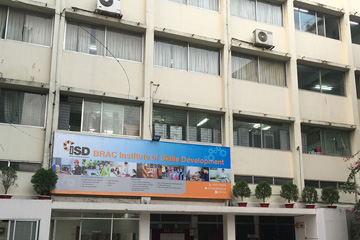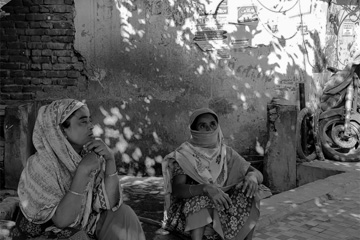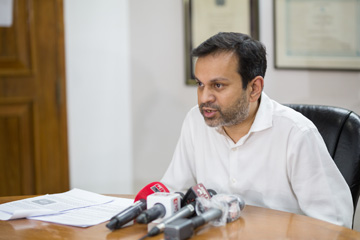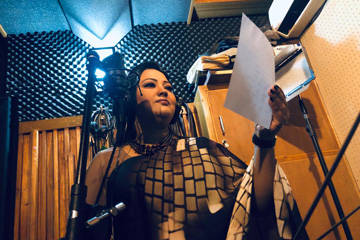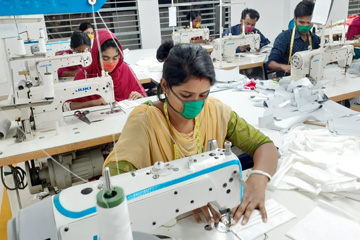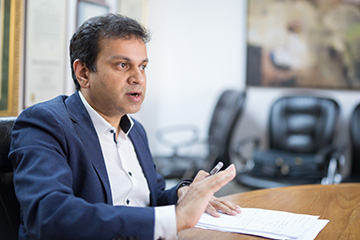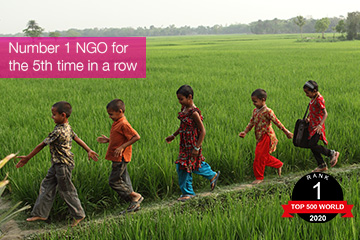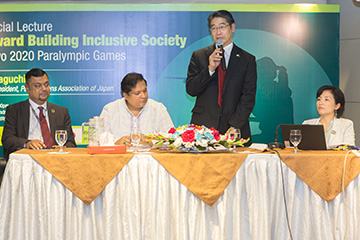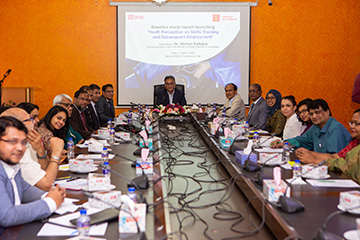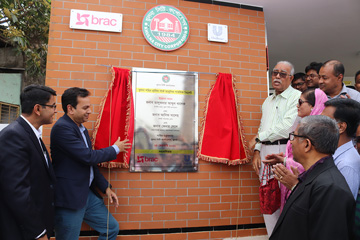
News (828)
BRAC hands over 430-room Learning Centre in Ashkona as Government quarantine centre

BRAC handed over its 430-room learning centre at Ashkona to the government today on Thursday (16 April) to use it as a quarantine facility for returnee migrants.
Also under a partnership with the government in a pilot project, BRAC has started collecting COVID-19 related community-level data from today (April 16) at the union level.
BRAC is further set to start kiosk-based COVID-19 testing separately at Bangabandhu Sheikh Mujib Medical University in Dhaka and Narayanganj on a pilot basis.
Asif Saleh, Executive Director, BRAC, said all returnees from abroad should stay in quarantine for 14 days for public safety and safety of their family members, which they will be able to do with relative ease if there are suitable quarantine facilities adjacent to Dhaka.
“This idea and commitment to the society has led BRAC to hand its relatively large learning centre at Ashkona to the government," he said.
BRAC executive director urged individuals and organisations with means to join its fundraising initiative so that assistance can be reached to more people living in ultra-poverty and in urban slums. For details on its fundraising initiative please visit: https://www.brac.net/covid19/donate/.
BRAC has been conducting a nationwide massive community awareness campaign since the outbreak of coronavirus in the country. As a partner of the Bangladesh government’s COVID-19 response plan, over 100 thousand of its staff, health workers and volunteers are deployed to conduct the campaign jointly with local administration and public representative bodies.
So far, more than 600,000 sachets of liquid soap, soap bars and hand sanitiser have been distributed across the country. Health workers and mass people received more than 55,000 surgical masks and 81,000 gloves for personal protection against COVID-19.
BRAC has already started manufacturing reusable masks and personal protective equipment (PPE) through its hygienic home-based production units and distributed approximately 350,000 masks and 2,150 PPEs.
Alongside running an extensive information, education and communication campaign at community level, BRAC is also conducting mass and digital media campaigns to sensitise people with messages of respiratory hygiene, social distancing, coughing etiquettes and hand washing. Renowned physicians, artists, policymakers and senior BRAC officials have joined the campaigns to raise awareness. For campaign details and content please visit http://www.brac.net/covid19/
14 percent low-income families do not have food at home
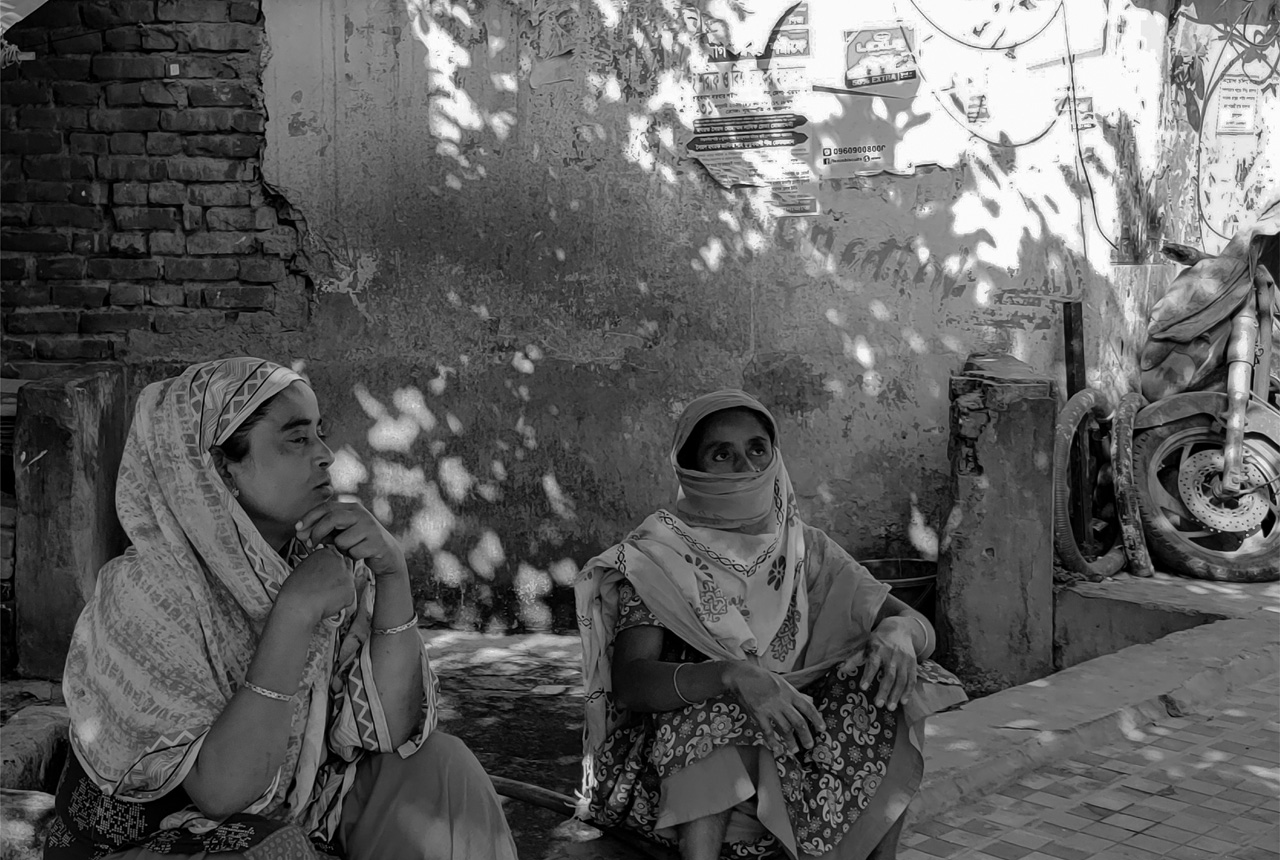
Focused awareness campaign urgent on symptoms, management and treatment
Low-income families of the country are suffering a great decline in their earnings since the enforcement of social distancing measures and lockdowns to fight COVID-19. Extreme poverty has hiked 60 percent than before, while 14 percent people do not have any food at home.
On the other hand, 36 percent of the people do not have any clear idea about measures to be taken to prevent COVID-19. Most people lack understanding of the message that one should not directly go to any healthcare facility with symptoms of the infection (fever, cough, breathing problem). Fifty-three percent of the respondents said they would suggest neighbours with these symptoms to go to an urban hospital or public healthcare centre. Only 29 percent said they would ask the patient to call the helplines.
This picture of economic impact and disease perception came through a countrywide survey conducted by BRAC. A total of 2,675 respondents from low-income backgrounds in all 64 districts participated in the survey carried out from 31 March - 5 April 2020. BRAC's advocacy for social change programme conducted the survey with assistance from other programmes, namely microfinance, urban development programme and the partnership strengthening unit.
Based on the scenario drawn through the survey, a number of recommendations have also been made, including the following ones.
Focused large-scale awareness campaigns on prevention, management and treatment should run on TV and social media. Food assistance must be immediately reached to the millions of households suffering from acute food shortage across the country, to halt them from leaving their homes to find work to feed their families. People who have returned to villages from urban centres are not enrolled in any social safety net programmes and so need proper delivery mechanisms to get food aid immediately. Special attention is needed to keep the agricultural value chain from stalling. Plummeting prices of agricultural products and costly transportation costs can increase rural poverty and create social unrest. The harvesting of boro rice will start from mid-April to continue till the end of May. Advance purchase of crops by the government can ensure the required money for the farmers to start harvesting. Plans and mechanisms should be devised to financially assist the rural businesses to recover loss and be operative again.
Some of the other noteworthy data and information derived from the survey are as follows:
Impact on earning and food security
The impact of reduction in earning is catastrophic for the communities surveyed. Before the pandemic started, the per capita income of 24 percent of the respondents were below the national lower poverty line, and 35 percent were below the national upper poverty line. Following the loss of income, the same share has increased to 84 percent and 89 percent respectively. It means 89 percent of the respondents now live in extreme poverty. It also means that extreme poverty has risen by 60 percentage points and poverty by 54 percentage points among the respondents.
The average household income of the 2,675 respondents was BDT 14,599 before the COVID-19 epidemic. Of them, 93 percent of the respondents reported a decline in income due to the outbreak. During March 2020, their average income stood at BDT 3,742, which represents an average 75 percent decline from their family income of last month. People in Chattogram (84 percent), Rangpur (81 percent) and Sylhet (80 percent) divisions reported higher decline in income.
Due to the public holiday and lockdowns to enforce social distancing measures, 72 percent of the respondents reported job loss or reduced work opportunities, and eight percent of the respondents, who are still employed, have not received their payment.
Those engaged in non-agricultural wage labour experienced more loss of income (77 percent), than the wage labourers in the agriculture sector (65 percent). Fifty-one percent of the rickshaw pullers, 58 percent of the factory workers, 66 percent hotel/restaurant workers, and 62 percent day labourers in non-agricultural sectors reported their income reduced to zero in the current month.
Awareness of the disease
Out of the respondents, 99.6 percent have heard about the disease, and 66 percent have first heard about it from television. Only 40 percent of the respondents mentioned isolation/quarantine as a possible treatment option. Men are more informed (60 percent) about whom to contact or what to do if one gets infected by coronavirus compared to women (38 percent). Of the respondents, 48 percent think that government hospitals do not treat COVID-19 patients and nine percent have no idea what to do if anyone contracts the disease.
Reaction on the public response
Sixty-eight percent of the people supported the government’s declaration of public holidays to prevent the spread of COVID-19. Only about seven percent disagreed. There is a general agreement among the respondents that the government may extend the public holiday by an average of 22 days. Majority (64 percent) respondents believed that the holiday might be extended by more than 14 days.
Majority (64 percent) of the respondents felt that the government is doing enough to tackle the epidemic, though 31 percent in rural areas and 40 percent of respondents in urban areas disagreed. Only four percent of the respondents have received any emergency relief support as of 5 April 2020.
Forty-seven percent of the respondents prefered food aid, while 20 percent wanted cash support. Rural respondents are more interested in receiving food (50 percent in rural, 44 percent in urban) support.
Coping Mechanism
Thirty-six percent of the respondents do not have any idea how they may cope with the loss of income. Twenty-three percent of the total respondents (38 percent among women) hope that the government will support them in case the crisis lingers on. Urban residents are more hopeful about government support than the rural inhabitants. Nineteen percent of the respondents are planning to take some credit to support their families if the situation continues.
Report download here.
BRAC commits BDT 15 crore as emergency cash assistance for 100 thousand low-income families
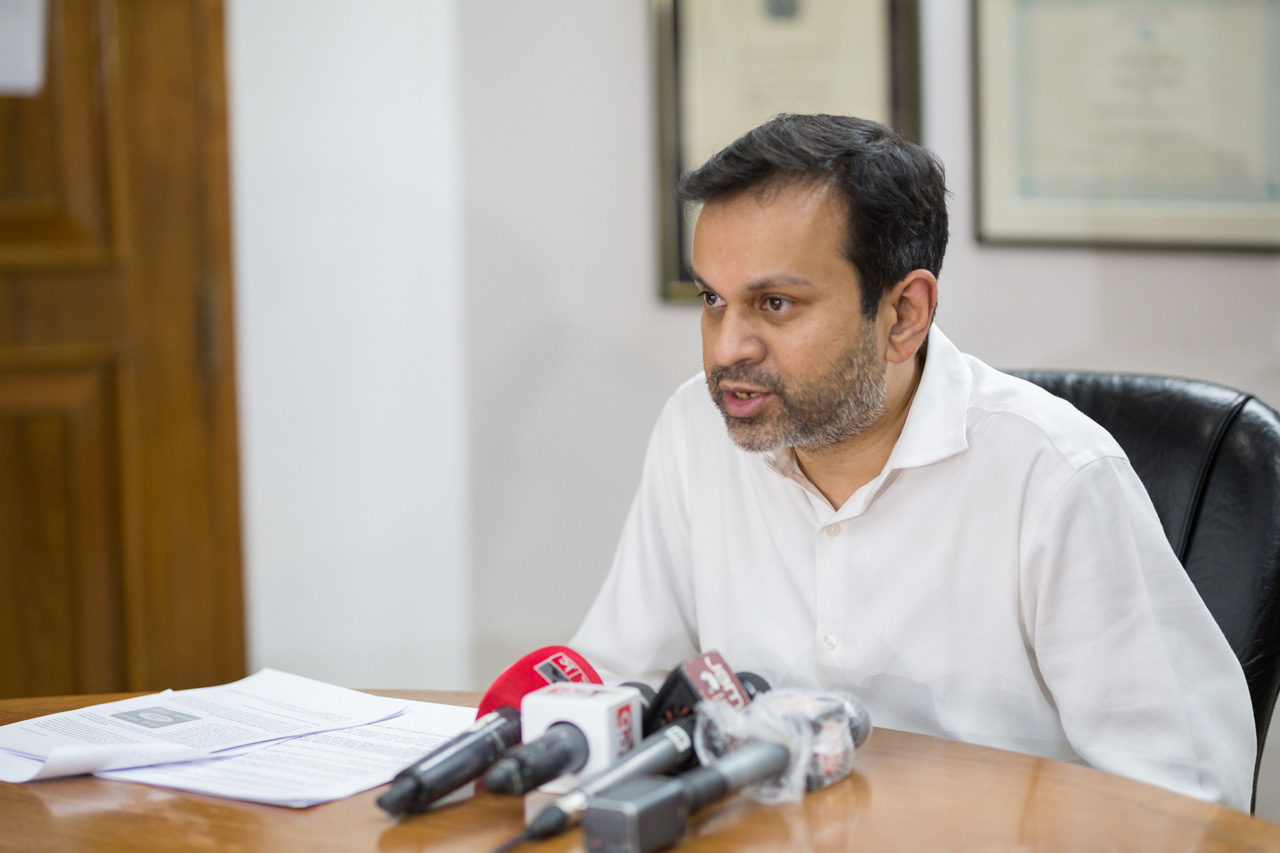
BRAC has allocated a budget of BDT 150 million (15 crore) for low-income families in urban slums, semi-urban and hard-to-reach areas, whose livelihood have been impacted due to the social distancing measures of COVID-19 pandemic. Each family will be provided with BDT 1,500 as an emergency food assistance fund, starting from Thursday, 02 April 2020).
In the first phase, 100,000 families will be assisted with BRAC’s own fund, which is to be disseminated through its urban development programme, ultra-poor graduation programme, integrated development programme and the humanitarian programme.
Asif Saleh, Executive Director, BRAC, said on this initiative, "COVID-19 is a humanitarian crisis with a public health dimension. In countries like Bangladesh, it also has dire economic consequences. According to the World Bank, only 15 percent of Bangladesh’s population makes more than BDT 500 a day. Most villagers depend on remittances from the cities or abroad. Because this is a global crisis, people everywhere are out of work. Their income flow has stopped.”
“Our emergency assistance will be targeted towards low-income families who have lost their source of livelihoods due to the ongoing pandemic. We will support 100,000 such families. However, the requirements are far bigger. I urge compassionate individuals and organisations to come forward and help us scale up the initiative to reach many more,” he added.
Asif Saleh further said that this activity will be implemented in close coordination with the local public representatives and administration, particularly to avoid duplication.
BRAC’s assistance will enable a family of four to buy essential food items for two weeks. Low-income families in 12 city corporations, eight municipalities, 38 sub-districts, haor villages, neighbourhoods and market areas near river ports, as well as host communities living adjacent to the displaced Rohingya population camps in Cox's Bazar will receive this assistance. BRAC staff will carry out the operation with assistance from the local public representatives and communities.
BRAC has also launched a fundraising appeal to scale up the effort and increase the coverage. Individuals and any organisation can donate. Details are available on BRAC website: https://www.brac.net/covid19/donate/.
BRAC's urban development programme will lead the distribution among 61,000 families in 12 city corporations and eight municipalities. BRAC's ultra-poor graduation programme will carry out the operation in 38 sub-districts under which 16,000 families of hawkers, rickshaw and van pullers and domestic helps will receive the money. The BRAC Integrated Development Programme will provide the assistance to 8,000 families living in haor areas, and markets and neighbourhoods near river ports. Also, 15,000 families in the host communities in Ukhya and Teknaf sub-districts of Cox's Bazar will receive the assistance.
BRAC is also driving a nationwide hygiene awareness and behavioural change campaign with its network of over 100,000 staff, volunteers and healthcare workers with the support of local administrations.
It is distributing protective wear and hygiene products, and 568,095 units of liquid soap, bathing soap and sanitisers, and 106,519 units of protective wear such as masks and gloves were distributed to the staff and communities.
Additionally, 200,000 reusable masks and 2,000 PPE have been produced through hygienic, home-based production mechanisms which have already been distributed. More masks are in production right now.
BRAC is also running an extensive public awareness campaign through social media and mass media, involving eminent physicians and public health experts, policymakers, artists and BRAC's senior leadership team. Details are available on this dedicated portal: http://www.brac.net/covid19/.
Artist Momtaz calls to defeat Corona: Partners with BRAC

Dear people of my country/ Artist Momtaz is here/ Favourite with all of you/ Sharing a great feeling of mine/ When my friend coming back to homeland/ Thoughtful for good of others/ Locks himself up in home/ For 14 days on/ Wraps me in with/ A true feeling of goodness...
With these words, the iconic ‘Queen of Folk' starts her song that conveys awareness-raising messages to tackle COVID-19. As a part of its effort to sensitise mass people about the abiding rules of social distancing, hand washing and respiratory hygiene to tackle the pandemic, BRAC has paired with the eminent singer to launch this song on Tuesday, 31 March 2020.
Lyrics carrying life-saving messages with the tunes of a popular song of the artist, the song is expected to create a significant impact on the society, helping people adopt standard practices imperative to combat COVID-19.
As part of its series of digital and social media content for behaviour change communication, BRAC has already paired with Kuddus Boyati, one of the noted folk singers of Bangladesh, and released an informative song earlier. The composition has already attracted a great number of audience and engagements while being played on loudspeakers in cities, towns and villages across the country.
Artist Momtaz Begum, who is also a sitting Member of Parliament, said, "It is our duty to come forward during this national crisis and help people in any way we can."
Moutushi Kabir, Director of Communications and Outreach, BRAC and BRAC International, said "The most important arms to fight the pandemic at present is public awareness and change in our daily habits and behaviours. BRAC is actively supporting the Government of Bangladesh and partnering with a wide number of private sector and non-governmental organisations to fight COVID-19. We are grateful that popular artists like Momtaz Begum and Kuddus Boyati have come forward to help us in taking the message to the mass, especially in suburban and rural areas."
Ms Kabir also stressed the importance of active initiatives to counter the spread of fear and rumours around COVID-19 symptoms that is often barring people with fever, chest congestion or breathing conditions from accessing treatment from professional physicians or health facilities.
This is part of BRAC’s ongoing public awareness and behavioural change interventions to stop the spread and social transmission of COVID-19. The messages are relayed extensively in rural areas by BRAC’s frontline staff, reinforced through miking, social media and mass media promotion and cascaded through 16 community radio networks across Bangladesh.
BRAC starts production of reusable masks and prepares for production of PPE
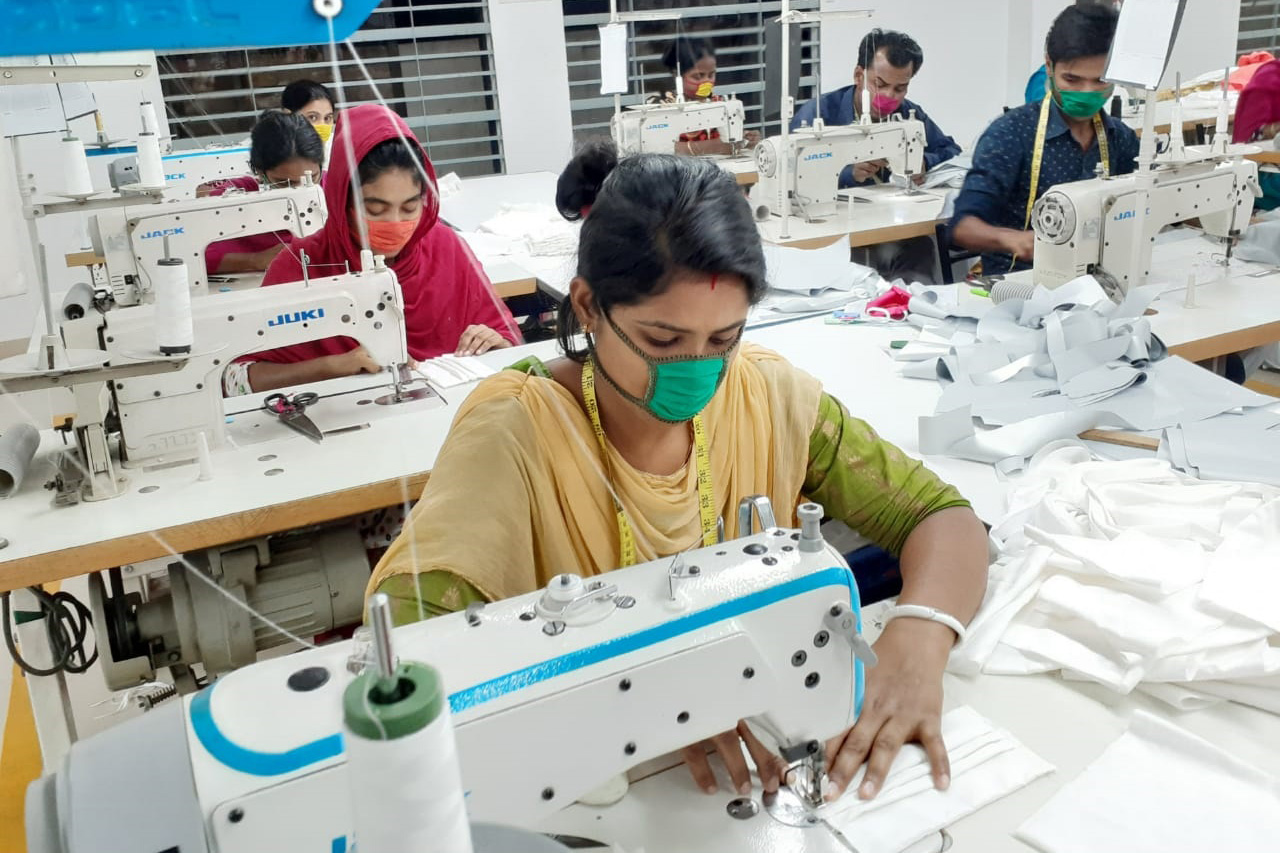
Millions of people reached with prevention messages and hygiene products
BRAC has started manufacturing over 2 lakh (200 thousand) pieces of reusable masks through its hygienic home-based production method for community use as part of the organisation's extensive campaign against COVID-19. It is also currently examining the production of personal protective equipment (PPE) and hopes to go into its production very soon.
Asif Saleh, executive director, BRAC, said in this regard, "We are rapidly expanding our capacity for effectively responding to the COVID-19 pandemic. Besides operating mass awareness campaign reaching to millions of people, we have now started production of protective wear. While we are manufacturing protective masks, we are exploring and building our capacity to manufacture PPE in our country. Once our production process is perfected following the scientific standards and standardized matrrial, we hope to go into large scale production. We then want to partner with BGMEA and other entities concerned under the government's guidance."
Meanwhile, over 50 thousand frontline healthcare providers of BRAC have started to implement its extensive awareness raising campaign to reach millions of people in 61 districts of Bangladesh to prevent COVID-19 along with distributing protective hygiene products. BRAC has also stopped collecting the installments from its microloan borrowers from 24 March to April 2. It is also running an extensive campaign at the Rohingya camps and host community as well in Cox's Bazar along with distributing soap bars and other necessary materials. In Urban slums and public hotspots it has set up hand washing stations and undertaking a disinfectant campaign in public transportations in partnership with city corporations.
So far, more than 8,500 members of BRAC staff have been provided with specific orientation on COVID-19 prevention and self-protection measures, enabling them to lead the community awareness campaign at the grassroots. More than 170,000 participants and clients of BRAC's development programmes have been briefed to strengthen community's own effort to prevent an outbreak of the disease. Over 2.5 million leaflets and 500 thousand stickers with messages were delivered door to door. Also 7,670 units of hygiene products, such as, liquid soap, sanitisers and soap bars, and 17,932 units of protective wear, such as, masks and gloves, were distributed among the community and frontline BRAC staff.
As a partner of the Bangladesh government's COVID-19 response plan, BRAC is working jointly with the local administration and government. Our staff has handed information, education and communication (IEC) materials to the offices of deputy commissioners, upazila nirbahi officers and civil surgeons. All local offices of BRAC are displaying large banners with sensitising messages of respiratory hygiene, social distancing, coughing etiquettes and hand washing. It's digital media campaign with experts and celebrities have reached over 4 million people and it is about to start a mass media campaign on fighting Corona from Thursday.
Responding to BRAC's call, several organisations have joined to undertake collaborative efforts to fight against Novel Coronavirus. The Department for International Development (DFID), the UK government's overseas aid agency, has agreed to work with BRAC to comprehensively combat the coronavirus diseases through short and long-term solutions. BRAC has enrolled 5 doctors to assist the Directorate-General of Health Services to support the ongoing hotline services to identify and assist COVID-19 patients. The partnership between the Institute of Epidemiology Disease Control and Research (IEDCR) and BRAC is now functional. On 22 March 2020, 20 doctors from BRAC joined to assist hotline services of IEDCR. BRAC is also partnering with Psychosocial Health and Wellness Centre (PHWC) and Kaan Pete Roi in launching a nation-wide tele-counselling platform soon titled "Kaan Pete Roi" for persons in distress, owing to the panic created by COVID-19.
Reiterating the urgency for more collaborations to fight the pandemic, Asif Saleh said, "We are left with no alternative at this moment but to raise ever more joint efforts. While we are happy to see our government, donors, businesses and development partners come forward, we would continue to explore more such opportunities. He urged the public to pay serious attention to the government warning and to avoid travel and maintain social distance.
Fight against novel coronavirus
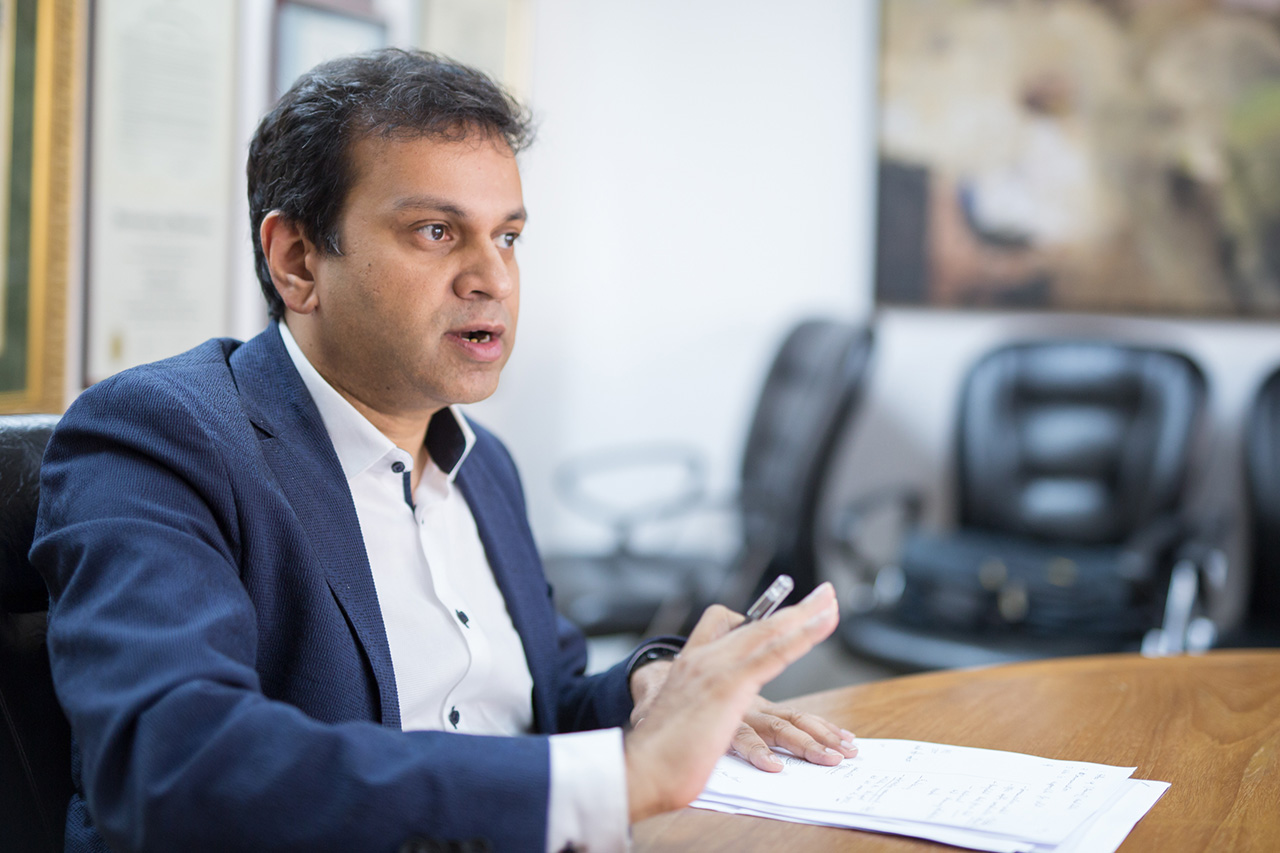
100,000 BRAC staff, volunteers working in communities to raise awareness.
BRAC has instructed all non-essential staff working at its head office in the capital’s Mohakhali to stay at home and work online from 22-25 March as a preventive measure against the Novel Coronavirus (COVID-19) infection. Approximately 2,000 members of staff work at the head office and non-essential employees constitute those who are not involved in responding to the coronavirus crisis.
BRAC Executive Director Asif Saleh said the decision has been taken as part of BRAC’s initiative to support the National Response Plan to maximise the organisation’s impact. The staff will be notified of further actions by Thursday, 19 March.
All BRAC staff at the field offices across the country will also maintain curtailed activities, Saleh said.
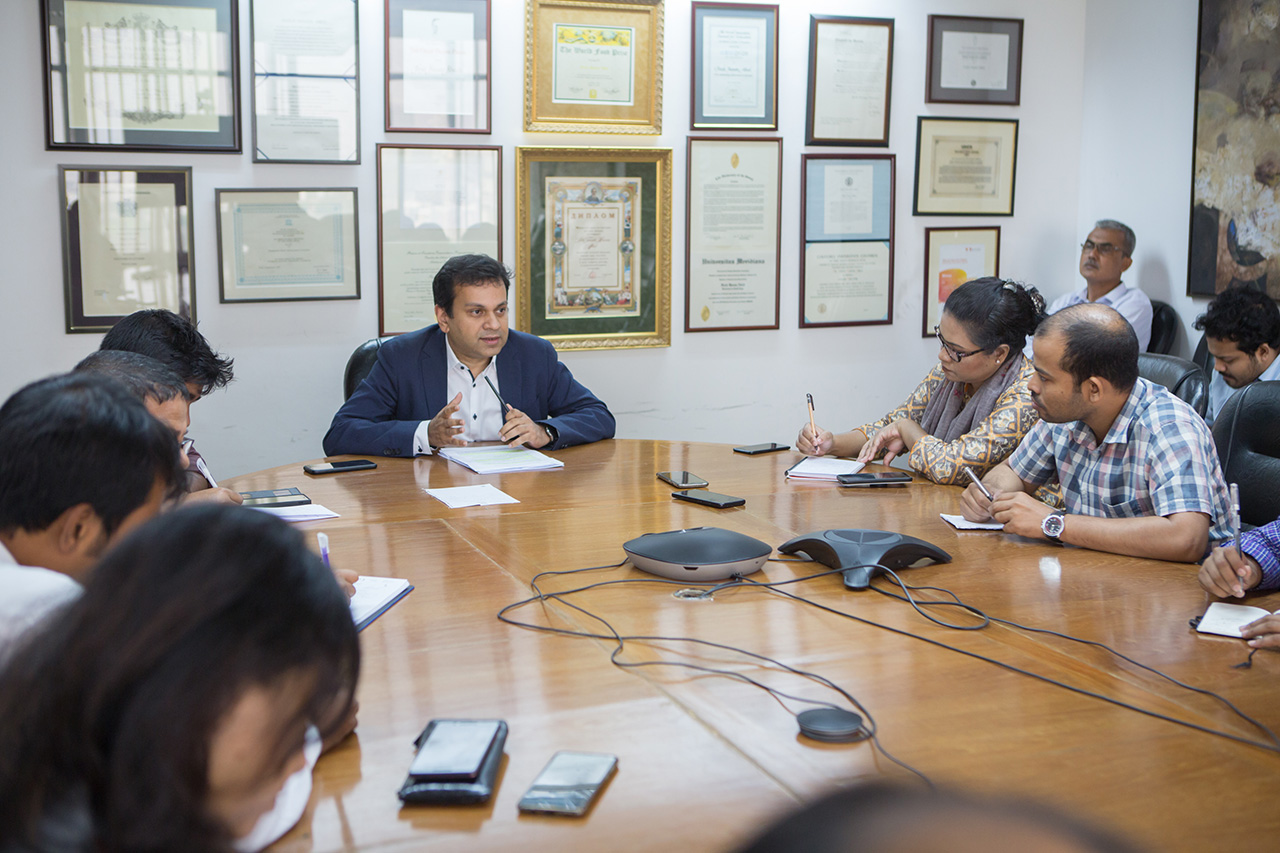 He also urged employees to avoid non-essential travels and said the interim measures will continue for a week, adding the decision will be reviewed on 28 March.
He also urged employees to avoid non-essential travels and said the interim measures will continue for a week, adding the decision will be reviewed on 28 March.
In the meantime, BRAC’s field officials working under different programmes across the country have been instructed to join the force of its health programme and act as health volunteers in different awareness campaigns for Coronavirus prevention.
“We have 50,000 community health volunteers across the country and 45,000 members of our own staff have joined the force to raise awareness against Coronavirus,” Saleh said.
Aside from working in the fields, BRAC is using its social media platforms to raise awareness. Relevant content on proper handwashing and respiratory hygiene is being regularly promoted through BRAC Facebook page and blog. BRAC has also set up a dedicated web portal http://www.brac.net/covid19/ on BRAC website where people can access concrete, reliable and updated information.
Having said that, BRAC is fully prepared to assist the Government of Bangladesh in its fight against Coronavirus. Asif Saleh also called upon the authorities to decentralise the COVID-19 testing facilities across the country to deal with the situation more efficiently.
“Currently, the Institute of Epidemiology, Disease Control and Research is the sole authority to test Coronavirus. Considering the huge number of service seekers, the government may decentralise the facilities to other hospitals across the country with necessary kits to help provide identification and treatment services,” said Saleh.
BRAC ranked #1 NGO in the world for the fifth consecutive year
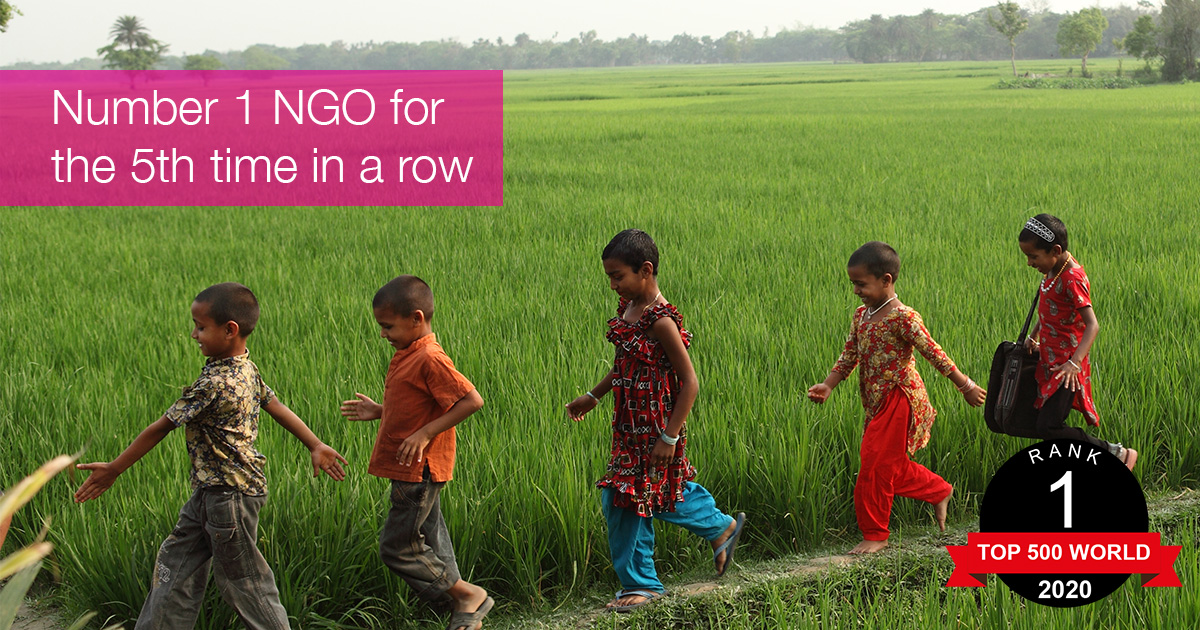
The organisation maintains its top ranking as it continues the legacy of late founder Sir Fazle Hasan Abed
BRAC has been ranked the world’s number one non-governmental organisation (NGO) of 2020 by NGO Advisor, an independent Geneva-based media organisation. BRAC, a leading development organisation based in Bangladesh, retained its top spot in part due to its robust leadership and governance structure and continued commitment to systemic change.
“We are deeply grateful and humbled to receive this accolade. 2020 will be the first year for BRAC family without our Founder, Sir Fazle Hasan Abed. We take this recognition as a reminder to be worthy of his legacy and continue the fight for a world free from all forms of exploitation and discriminaton,” said Ameerah Haq, Chair, BRAC Global Board.
After nearly five decades of experience in Bangladesh and beyond, BRAC recently announced a new 2030 strategy that prioritises scaling its global reach, targeting participants with multiple interventions, and developing collaboration and knowledge-sharing leadership across the development sector. In 2019, it formed a new Global Board to lead and implement this strategy.
“In the BRAC Global Strategy, Sir Fazle has set an audacious goal for us, empowering at least 250 million people to have control over their own livelihoods by 2030. We’ll keep striving every day to make his vision a reality,” Ms Haq added.
Jean-Christophe Nothias, Editor-in-Chief and CEO of NGO Advisor, cited BRAC’s renewed commitment to innovation and impact and its advanced preparations to transition leadership and governance responsibilities to the next generation of leaders as key factors that contributed to the number one ranking.
“This 2020 list is launched with excitement as the social profit sector keeps growing and transforming the world, but also with sadness as the founder of BRAC, Sir Fazle, passed away in 2019,” wrote Jean-Christophe. “He was a man of outstanding stature and humanity; he was at the forefront of systemic changes we are still aiming for. We have reason to believe that BRAC is on its way to pay a sustainable tribute to its founder by keeping its leading, driving role in the social profit sector.”
NGO Advisor publishes rankings for the top 500 global NGOs each year, drawing upon publicly-available data and focusing on impact, innovation, governance, and sustainability as key factors informing the rankings.
2020 marks BRAC’s fifth consecutive year in the number one spot. BRAC shares the top five with several high-impact peers, including Médecins Sans Frontières, Danish Refugee Council, Open Society Foundations, and Mercy Corps.
GoB will build international standard para-sports complex for athletes with disabilities
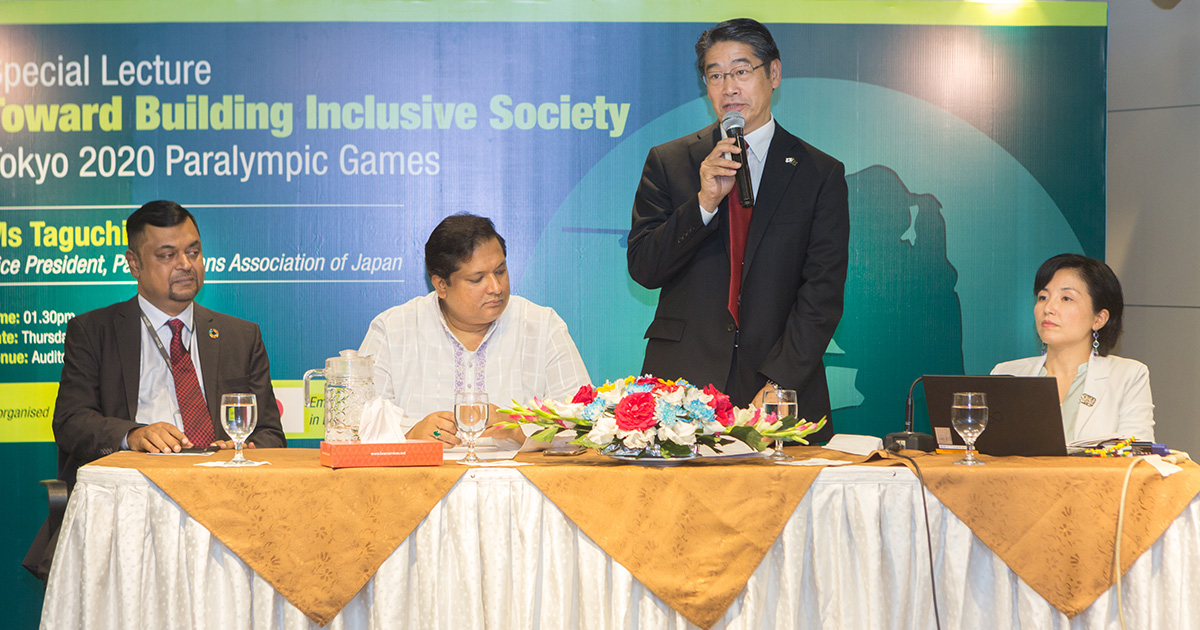
Mr Md Zahid Ahsan Russel, minister of state for youth and sports of Bangladesh, said Prime Minister Sheikh Hasina has allocated land near the National Parliament House in the capital to build an international standard complex for adaptive sports. "Athletes with disabilities will be provided with all kinds of facilities in this complex," he said in his speech at an event today on Thursday (5 March) at the BRAC Centre at Mohakhali in Dhaka city.
The event, a special lecture followed by a press briefing, was organised on the occasion of Dhaka visit by Ms Aki Taguchi, former celebrated athlete of Paralympic and currently vice president of Paralympians Association of Japan. The visit is part of a campaign to raise public awareness about the Paralympic Games and the importance of establishing an inclusive society for the greater wellbeing of everyone, particularly the persons with disabilities.
The Embassy of Japan, in cooperation with BRAC, arranged the programme with state minister Mr Md Zahid Ahsan Russel being present as the guest of honour. Mr Ito Naoki, Japanese ambassador in Bangladesh, also addressed the audience at the event.
Ms Aki Taguchi, said, "Persons with disabilities have a lot to contribute to the wellbeing of the society. Twenty-five years ago, I received severe injury in my spinal cord in an accident. I could not stand on my feet. Later on, I took up beam rifle. At one point, I represented my country in the Paralympic Games and made history as I had passed into the final round."
Calling on the persons with disabilities in Bangladesh to engage in sports, she further said, "I want persons with disabilities to come forward to take up sports and bring honour for Bangladesh."
Ms Taguchi represented Japan in the shooting events for three years in a row at the Paralympic Games which are Athens 2004, Beijing 2008 and London 2012.
Beforehand in the morning, she visited the Neurodevelopmental disability centre (NDD) operated by BRAC Education Programme in Korail slums in the capital. Later she remarked, "During my visit to the BRAC School, I had caught sight of a school playground nearby. There I saw all other children were playing with the children with disabilities. It's a scene that you'll witness in a very few countries of the world. BRAC is doing commendable work. This is what the reality should be everywhere."
Skills development to create employment for the youth
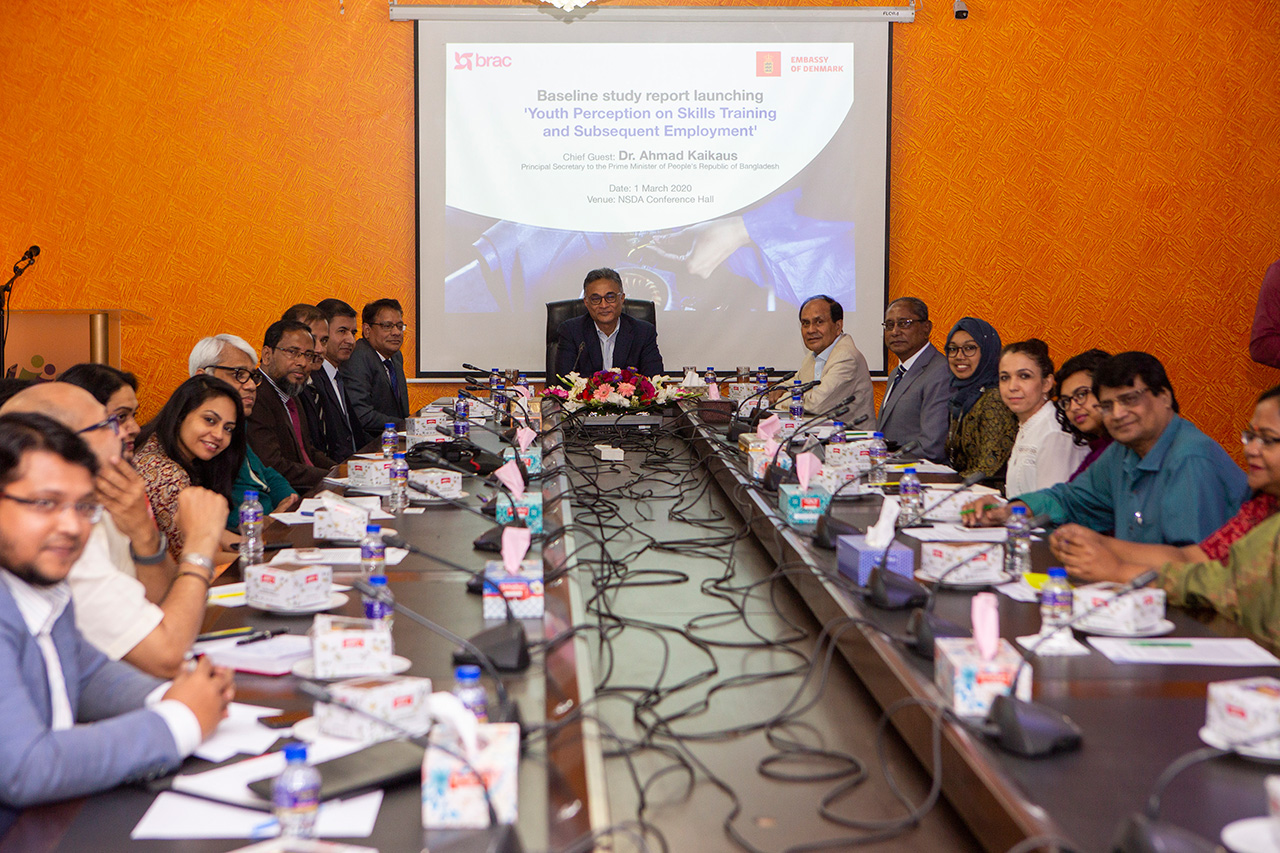
Technical education yet to get popularity among women
A significant portion of the youth currently has access to social media, especially Facebook, and this access can be used to empower the youth with skills and spread the knowledge of technical and vocational education and training (TVET). Besides, initiatives must be taken to involve women, who are found to be reluctant to get involved in technical education. They must be encouraged to participate in TVET.
These are some of the key findings of a study BRAC has conducted recently, under a project funded by the Embassy of Denmark, which aims at changing the youth’s perception of skills training. BRAC Institute of Educational Development (BIED) conducted the study.
To disseminate the findings of this study, BRAC Skills Development Programme organised an event at the conference room of National Skills Development Authority (NSDA) at the capital’s Tejgaon on Sunday, 01 March 2020.
The study aimed at identifying the perception of the youth, their guardians and the relevant stakeholders about technical and vocational education and training; and making the respondents aware of the importance of enhancing skills through technical, and information and communication technology training.
Dr Ahmad Kaikaus, Principal Secretary to the Prime Minister, addressed the event as chief guest. NSDA Executive Chairman, Golam Md Hashibul Alam attended the event as a special guest. Director of BRAC Skills Development Programme Brig Gen Aftab Uddin Ahmad (retd) presided over the event.
To explore and enhance public perception towards skills training and subsequent employment, BRAC conducted the study among a sizable number of youth, aged between 18 and 35 years, and having the minimum educational qualification of Secondary School Certificate, with their parents and other stakeholders to assess their understanding and perception of TVET. The survey was conducted at 22 subdistricts and police stations across 10 districts under three divisions.
The study found that 67 percent of the youth respondents and 54.2 percent of their parents perceive TVET as a way of preparing the youth for employment.
Eleven percent of the youth reported to the scope to study TVET in their own school at the secondary level but only 3.2 percent received such education. While the opportunity of getting a job promptly was the biggest motivation for 46.2 percent of those who studied technical education, TVET as a stream of education did not come to mind for 43.8 percent of the youth.
One of the key findings of the study is that the youth think TVET can help ‘to get a job quickly’ and it is more likely to be accepted by men than women as the former ‘are likely to take responsibility to run their families’. Other findings include that, access to the internet is essential for the spread of TVET and Facebook is the most effective digital platform to build awareness on technical and vocational education. TVET has a higher percentage of positive acceptance among the rural youth and urban parents rather than their respective counterparts.
Addressing the event, Dr Kaikaus said, “We will step cautiously towards our goal of achieving the Sustainable Development Goals (SDGs) and shaping up skilled people, and creating jobs for them is crucial for that. There are misconceptions about skills itself and people need to understand that a skill is attainable irrespective of the demographic dividend.”
“The youth constitutes 67 percent of the labour force and they can work with the experienced demographic as long as both groups are eager. We need to reap the benefits of the fourth industrial revolution and a skilled youth demographic is a precondition for that,” he added.
Special guest Mr Hashibul Alam said, “Public private partnership is a crucial medium to harbour skills and it can play a huge role in transforming the nation. The government is committed to deploy its resources whenever and wherever necessary”, Alam added.
The former Principal Secretary to the Prime Minister and Senior Adviser to BRAC, Mr Abdul Karim, said “BRAC can work very hard for effective globalisation. Our participation in the fourth industrial revolution is extremely important and BRAC will keep an eye so that more and more skilled people can join the nation’s workforce,” he added.
Refika Hayta, Deputy Head of Mission of the Embassy of Denmark, said “It is more important to chase the youth who are not in education and not employed. It is a challenge to address the SDGs and we are making sure that no one is left behind”, she added.
“We feel there is a need for perception change and the youth are not ready for changes. They need to be influenced through better navigation. Experience in other countries shows that technical skills give more employment and we need to make the youth interested in attaining that,” she added.
The youth constitutes 27.5 percent of the total population in Bangladesh. Over two million young people enter into the labour force every year.
Enhancement of skills development, especially for the youth, has been a point of attention globally and technical and vocational education has been regarded as essential tools in the Sustainable Development Goal (SDG) to meet the challenge of employment. The Government of Bangladesh also considers this as a national priority and accordingly treats TVET as a crucial component to address the issue of personal and economic development in the National Skills Development Policy.
To assist the government in creating skills-related opportunities for such a large number of youth, BRAC – the largest international development organisation, has prioritised skills training and employment for the youth in its development programmes.
To influence changes in the existing understanding and perception about technical and vocation study, the BRAC study emphasises on organising mass campaigns at the community and school levels along with branding and promotional initiatives.
Adopting special initiatives for enhancing female perception on TVET, organising training with special focus on ICT use, and ensuring a global standard of the TVET curriculum and training module are other priorities.
BRAC and Unilever launch disabled-friendly modern WASH centre in Khulna
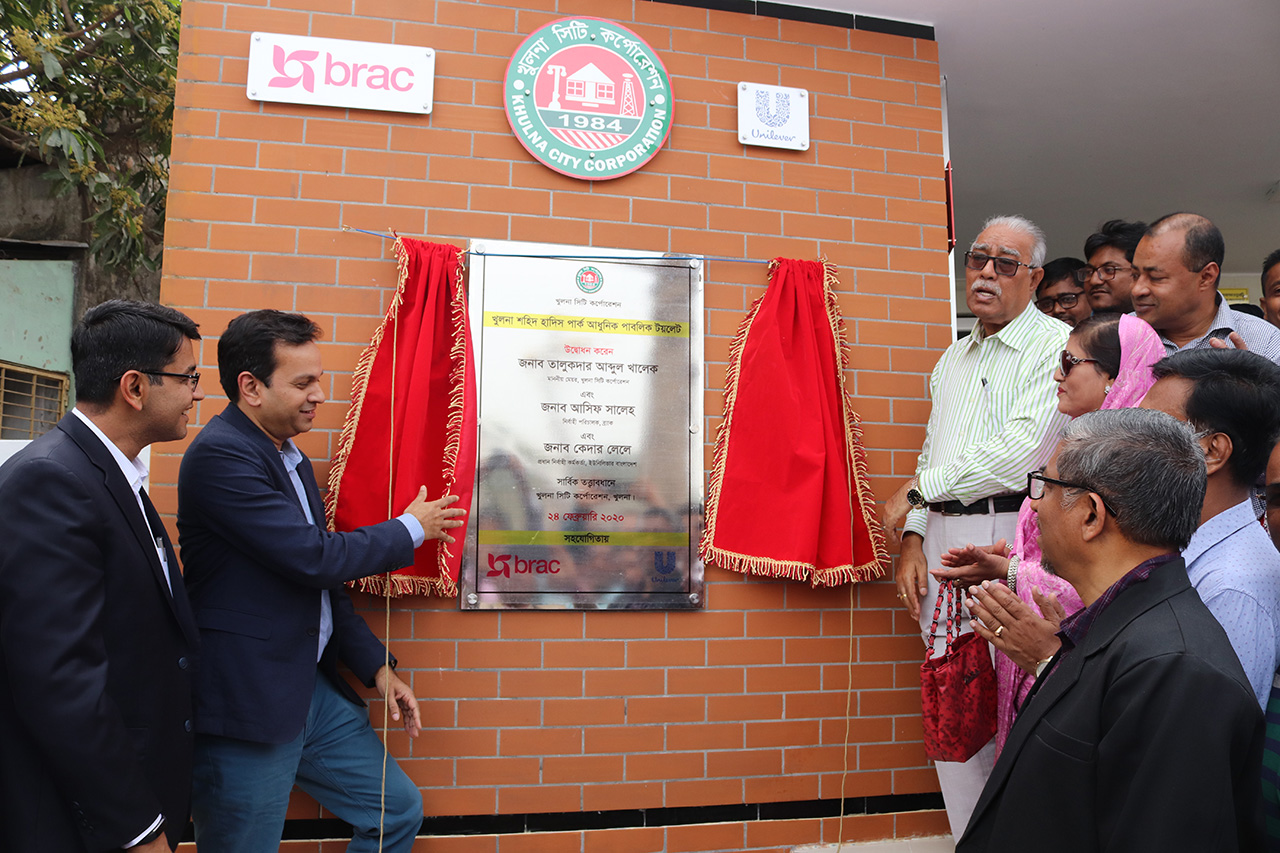
BRAC and Unilever Bangladesh Limited jointly launched a public toilet with features for persons with disabilities at Shaheed Hadith Park in Khulna city today on Monday, 24 February. The facility provides separate toilets for men and women along with standard hand-washing space and safe drinking water. In addition to these, there are options for women to change sanitary napkins and their babies' diapers and also have access to a safe and hygienic breastfeeding chamber.
The public toilet will be managed by Khulna Nagar Unnayan Mohila Samabay Samiti, a local women's cooperative with around 80,000 members.
Talukder Abdul Khalek, mayor of Khulna city, inaugurated the facility at the event also attended by Asif Saleh, Executive Director, BRAC, Kedar Lele, Chief Executive Officer and Managing Director, Unilever Bangladesh Limited, and Liakath Ali, Director, Urban Development Programme, BRAC.
Close circuit TV cameras have been installed at the entry and exit points of the facility to ensure tight security.
At the inauguration event, Mr Khalek said, “This public facility sets a good example of collaboration between public, private and community. We have to ensure that it is not used for any unwanted purposes. More such modern and inclusive toilets will be built in our city in the future."
Mr Saleh said, “Safe sanitation is a major challenge in urban areas of Bangladesh, especially for women and girls. This initiative has aimed to address that very problem. This is a unique example of public-private-social sector partnership which brought a sustainable solution for people living in poverty in the urban space."
Mr Lele said, “Access to sanitation is a basic human right, but not everyone is privileged enough to get it. With various features installed in this toilet, this partnership not only aims to provide sanitation, but aims to develop basic cleanliness habits. We believe only providing sanitation is not sufficient enough, but instilling hygiene habits is a necessity too. Through our products we focus on betterment of health and saving lives. As Unilever, we wish to see Bangladesh with proper sanitation services and this is just the beginning of a revolution. I thank BRAC and the honourable mayor of Khulna City Corporation for making us a partner for this initiative.”
The newly built public toilet will be maintained by professional cleaners and female caretakers with government supervision. BRAC Urban Development Programme, under a memorandum with Unilever Bangladesh Limited constructed the facility on the land allocated by Khulna City Corporation, aligning with the government's public-private-partnership policy.
Join the world’s biggest family

